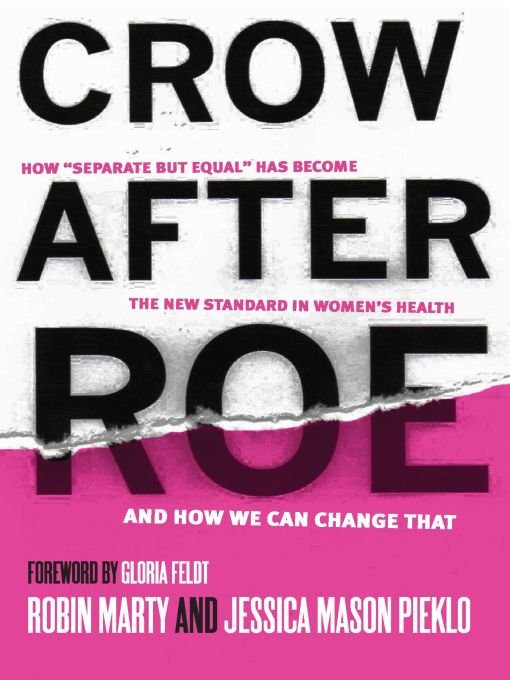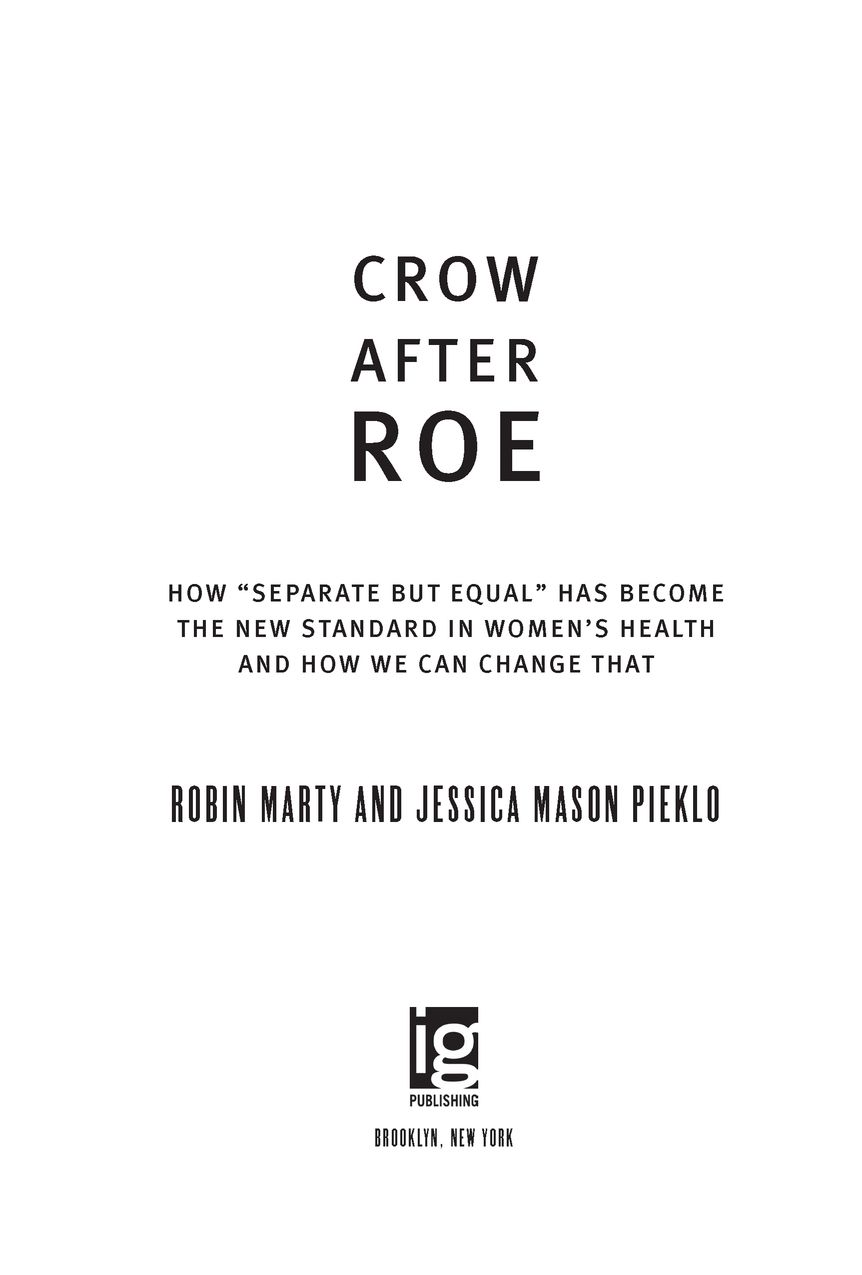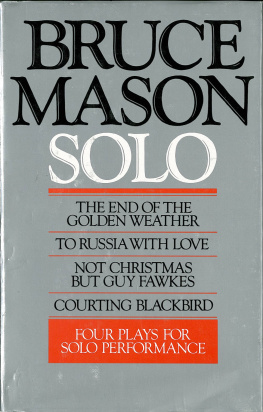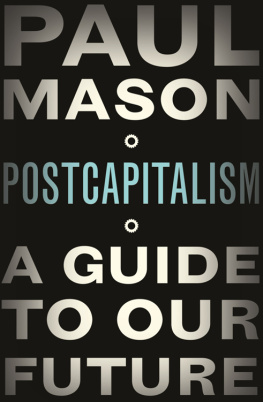Table of Contents
To those who need care but cant access it, and to those working tirelessly to change that.
FOREWORD
The right to an abortion may be a matter of standing law, but its legal underpinnings are being hacked away at an alarming rate, so that many women in this country, particularly the young and poor, are having to resort to desperate measures we never thought we would see again In many ways, we are back to where we were then, with a two-tiered system: women who have the means to travel to get a safe abortion could do so, and the others suffered illegal, unsafe abortions or unplanned pregnancies.
When I wrote these words in my 2004 book The War on Choice: The Right-Wing Attack on Womens Rights and How to Fight Back, I had spent three decades leading the charge on the frontlines of the battle for womens rights. Reproductive rights are both personal and political to meas they are to each and every human being. And they are not just about abortion, as the predominant media narrative implies, but also a panoply of health and justice choices concerning sex and family planning.
As a teenage mother in Texas long before Roe was decided, I struggled to obtain the type of control over my body and future that could only come from access to the birth control pill that came our way in the 1960s. As executive director of Planned Parenthood of West Texas in the 1970s just after abortion was made legal, I saw firsthand how reproductive choice truly was the most fundamental human and civil right for my generation and the generation of women and girls to follow. During the 1980s and 1990s in Arizona, I had the satisfaction of growing one of the largest Planned Parenthood affiliates in the country.
And as President of Planned Parenthood Federation of America from 1996 through 2005, I was able to help give more girls and women the means to create their own destinies and make their own responsible reproductive choices by gaining insurance coverage of contraception, getting FDA approval of emergency contraception and the early abortion pill Mifepristone, and more, despite intense opposition at every turn.
But over those years I also experienced some of the greatest assaults on the rights and access to abortion and birth control women had ever faced. Without access, rights are meaningless. I wrote The War On Choice as a call to action to illustrate how the Bush administration was circling the wagons around reproductive rights and health care access, promoting ineffectual, medically inaccurate abstinence only sex education programs and implementing gag rules while cutting family planning funding and evidence-based sex ed. Bush had recently signed into law the first-ever federal law criminalizing a standard medical procedure, the federal abortion ban its proponents deliberately misnamed partial birth abortion.
We must not just fight back, I warned; We must fight forward. Yet reproductive rights have eroded much, much further since then.
The 2008 election of President Barack Obama ushered in not (as many assumed) a time for reclaiming bodily autonomy, but instead the further elimination of abortion coverage in insurance plans to assist women in paying for procedures. Womens groups were either nave in thinking that having our side in power in the White House meant restrictions on reproductive rights and health care would come to an end, or they were co-opted by a president who withdrew campaign promises to prioritize the Freedom of Choice Act while attempting unsuccessfully to find common ground with anti-choice forces. After womens advocates lost the battle to keep further restrictions on abortion coverage out of the Affordable Care Act, the right-wing smelled weakness and unleashed a tidal wave of measures to hack away at access to abortion and contraception. From 2010 on, with the election of Tea Party ultra-conservatives across the country, hundreds of anti-choice state laws were proposed, with some states literally making abortion access available in name only.
There was backlash, of course, as women and men of like mind awakened to the threats that seemed more personal each day. The 2012 election showed us that reproductive rights mattered not just to those who had fought for them in the past, or those who lived in progressive, liberal states, but to the nation as a whole. But will that message make it to the White House, and even if it does, could it already be too late?
To turn the tide, the next generation must be engaged. Those of us who have long been in the fight must advocate for new voices to rise up, and to push on with a vibrant new agenda, not merely defend past wins. As you will see in the following pages, the anti-choice right has leveled a volume and variety of attacks never before seen in this nation, and they will not stop until Roe is overturned and women are second-class citizens again. But we can stop them if we change our tactics and bring the struggle for reproductive justice out of the womens issues ghetto focusing only on abortion, and into the mainstream conversation with a narrative that clearly recognizes that abortion is just the tip of a much larger ideological iceberg about womens place in the world.
We must also face the fact that privacy is not and has never been a strong enough legal justification for reproductive rights. Therefore, it is essential to bolster jurisprudence affirming womens civil rights to make their own childbearing choices, and to pass laws such as the Freedom of Choice Act that demonstrate grassroots support for womens full equality under the law.
Ive been directly involved in the fight for abortion rights since the year after Roe v. Wade was decided and I have seen many peaks and valleys. I have seen history repeat itself in part because of the general political cycles and shifts in party control. Yet the one thing that remains unchanged is our need to remain on the offensive, even when we are under assault, and even more so when we are allegedly in power. An aggressive agenda, one where we play from an offensive, not a defensive stance, is what we need today to reassert our rights to bodily autonomy. We must win back abortion rights for every woman, not just those who can be seen as victims due to sexual assault, not just those who can afford to travel to another state or country, to spend three days waiting, or to jump through the humiliating hoops that state legislatures force upon them.
Reproductive self-determination continues to be the most fundamental human and civil right in our society. During the fortieth anniversary of Roe v. Wade, we must commit to undoing our two-tiered system of access to reproductive health care. We must work together with more strategic action and less reaction to reaffirm that the right to choose unequivocally belongs to each woman and girl, regardless of race, location or economic status. We must be freedoms vanguards. Without that pledge, Roe wont see another forty years.
Gloria Feldt, President of Planned Parenthood Federation of America 1996-2005, and author of No Excuses: Nine Ways Women Can Change How They Think About Power
INTRODUCTION
The pinnacle of reproductive rights decisions, the 1973 Supreme Court ruling in Roe v. Wade established that any woman, regardless of means, race, income or class, had the right to determine whether or not she wished to remain pregnant.











